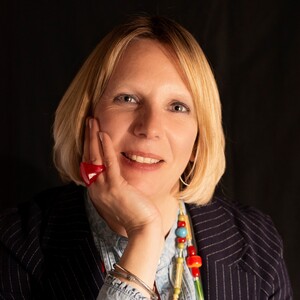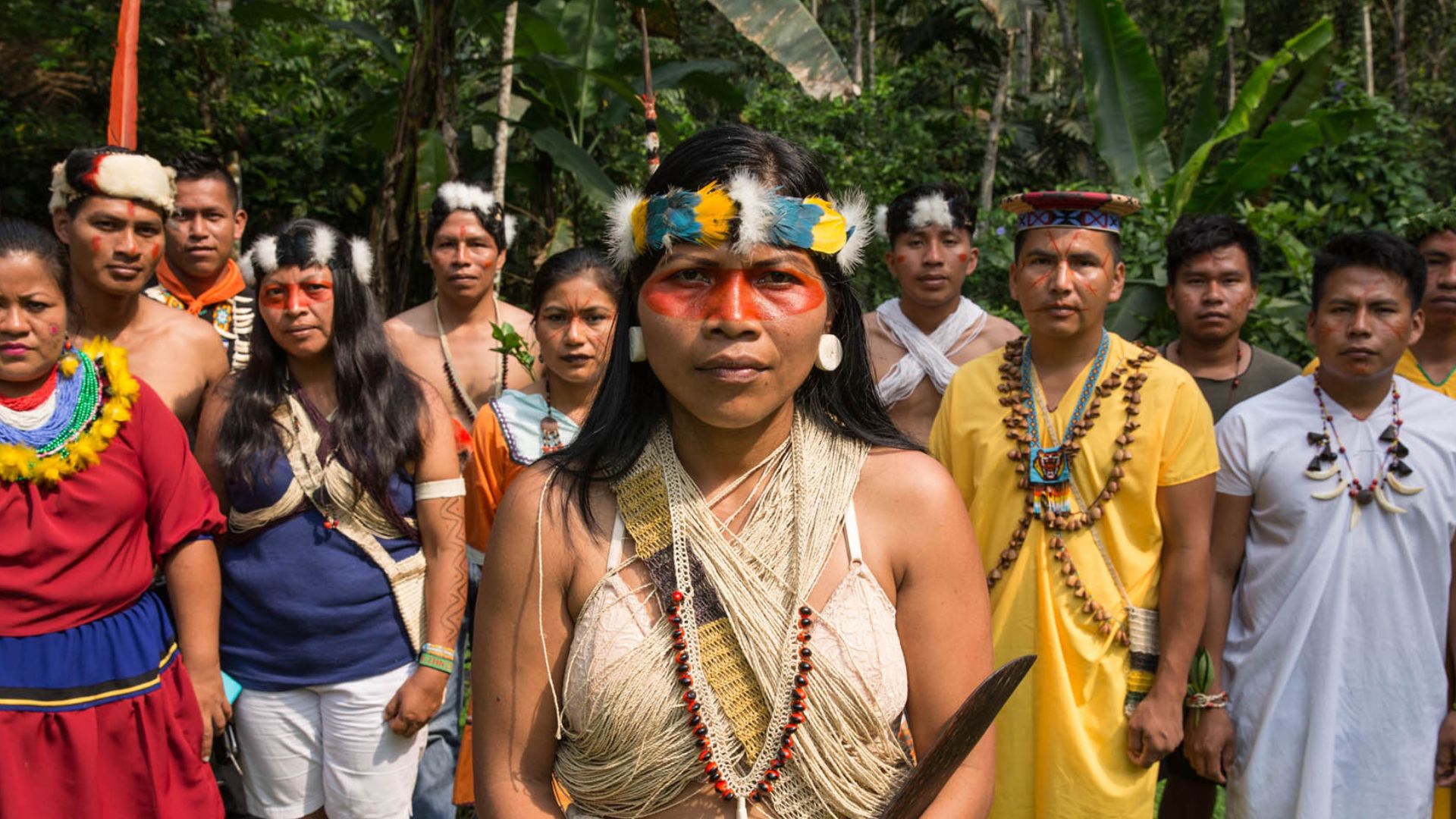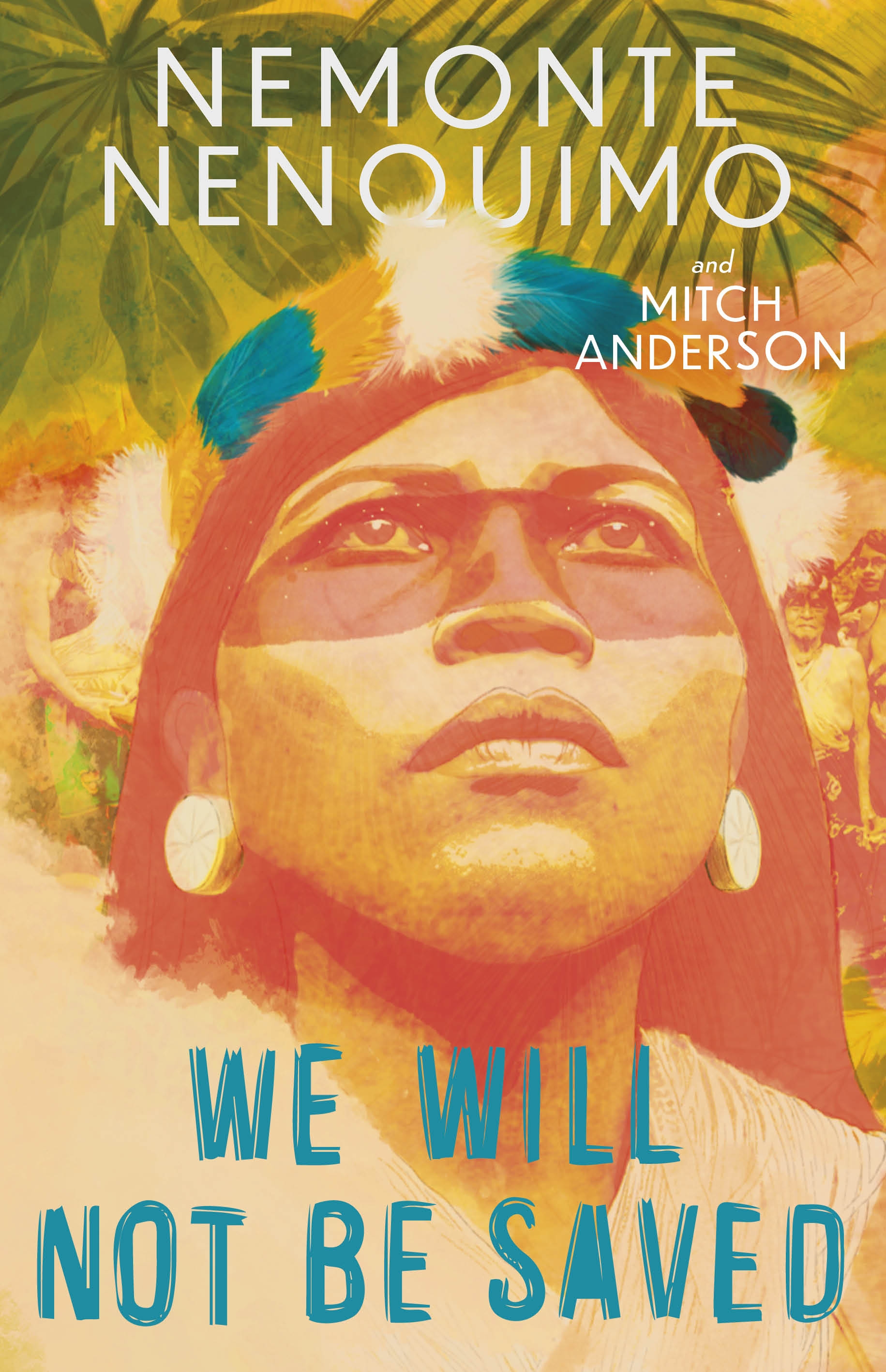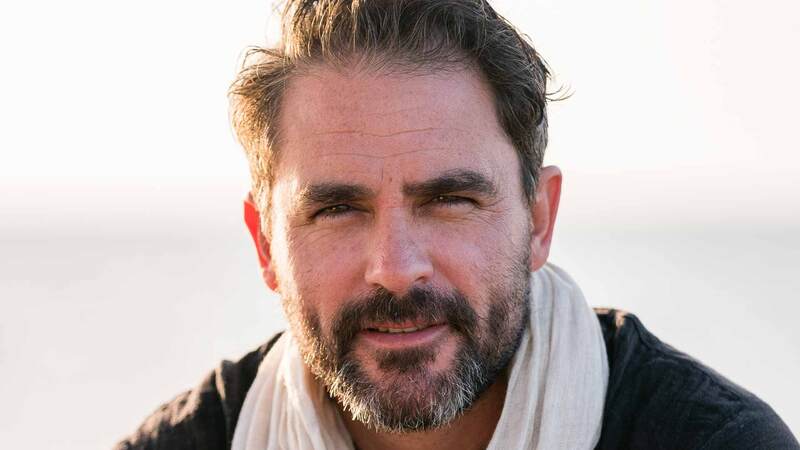You are viewing your 1 free article this month. Login to read more articles.
Nemonte Nenquimo and Mitch Anderson in conversation about how to save the planet

Caroline Sanderson is Associate Editor of The Bookseller, and since 2000, the magazine's non-fiction previewer. In 2022 she was Chair of ...more
Nemonte Nenquimo and Mitch Anderson’s memoir is a clarion call to save the planet.

Caroline Sanderson is Associate Editor of The Bookseller, and since 2000, the magazine's non-fiction previewer. In 2022 she was Chair of ...more
"We indigenous people are fighting to save the Amazon, but the whole planet is in trouble because you do not respect it.” This was the headline of a 2020 Guardian op-ed by Nemonte Nenquimo of the Waorani tribe of the Amazon rainforest in Ecuador, its message as sharp as her ancestors’ spears.
Winner of a Goldman Environmental Prize and named one of Time Magazine’s 100 Most Influential People in the World in 2020, Nenquimo is a mighty eco-warrior on behalf of the Waorani and the other indigenous Amazonian peoples. Her rousing words caught the attention of Wildfire publishing director Alex Clark, particularly the part of the article where Nemonte regrets not having more space to explain more of what the Waorani have learned over thousands of years “about life on this Earth”. Clark wanted to give Nemonte that space and signed her up for a book.
The result is a memoir that rings with the all too rarely heard voice of a proud indigenous woman. Entitled We Will Not Be Saved and co-written with her American partner, Mitch Anderson, it tells Nenquimo’s profoundly inspiring and humbling story, interwoven with an enthralling evocation of life in one of the most biodiverse places on Earth. Nenquimo, whose first name Nemonte means “many stars”, tells of growing up foraging in the forest, learning about plant medicines, and enchanted by the oral storytelling and shamanism of her elders. Then came Christian missionaries to her native forest, providing a point of entry for the horrific clearing, bespoiling and plundering of the ancestral lands of the Waorani by oil companies.
Aged 14 and seduced by the beliefs and ways of white people (or cowori as the Waorani call them), Nenquimo left the forest to study with an evangelical missionary group in the city and the experiences that followed were almost her undoing. That is until her ancestors began appearing in her dreams, pleading with her to return to the forest and re-embrace her own culture. Now, two decades later, she is one of the most forceful voices in climate-change activism, having spearheaded a successful campaign against the Ecuadorian government and the forces of Big Oil to protect over half a million acres of primary rainforest.
Refuge found
I meet the authors via video call, Anderson interpreting for Nenquimo who answers my questions in Spanish which she speaks in addition to her own language, Wao Tededo. The couple, who have two young children, are currently living in Mexico. “In the beginning of 2023 we received death threats and violence against our families, and we had to leave the Amazon,” explains Anderson. “So currently this is our home base, and our little bit of a refuge after a very traumatic situation”.
It’s a sobering early indication of the intensity of the fight they have on their hands, through the partnered work of the two organisations they co-founded: Ceibo Alliance, an indigenous-led Ecuadorian non-profit organisation; and Amazon Frontlines, an international group which supports the struggles of indigenous peoples to defend their rights to land, life and cultural survival in the Amazon rainforest.
The idea that Nenquimo and Anderson might collaborate on a book predated Wildfire’s approach. “The story and the desire to tell my story didn’t just happen overnight,” says Nenquimo. “I lived through a lot of suffering and pain in my blood and my bones and my spirit, and as I became a leader and began to organise against all of the unrelenting threats to our territories, I also began to learn that there’s a lot of ignorance about us, and a lot of romanticism. That made me realise that it was important for me to tell my story – and that of my people and our struggle – to the world.”
My ability to tell the Waorani people’s story was about me living such experiences for myself
There was always a sense of Nemonte having deep inside her a story that was “clamouring to be heard”, adds Anderson. “As we became a couple, Nemonte saw that I was learning about her people and the cultures of the Amazon and that I was a person who would listen; not just through one night or one month of documenting stories but over a decade.”
We Will Not Be Saved is a beacon of the understanding that is possible when white people stop, listen and learn for a change. While it’s an understatement to say that most of the cowori we encounter do not come out of it well, the memoir derives much of its power from the relationship between Nenquimo, the teller of stories, and Anderson, the recorder of stories. When they first met, Anderson was working with indigenous people building water catchment systems to ensure clean water after the oil companies had poisoned the local rivers. Realising she was falling in love with him, Nenquimo writes: “I wanted to make chicha for this gringo. I wanted to make the sweetest chicha in the entire rainforest for a white man [chicha is a beverage].” Anderson says: “I fell in love with Nemonte but I also fell in love with her stories, and with her people and their way of life.”
Collaborative process
I ask Anderson and Nenquimo how they worked together to write the book. “In the forest, we would often wake up at dawn and make a fire and Nemonte would begin telling me her dreams and stories from different moments in her life,” recalls Anderson. “We would go walking, gathering fruit, or on hunting trips together. My ability to tell the Waorani people’s story was about me living such experiences for myself. We would also do ayahuasca ceremonies [a ritual imbibing of a brew with psychedelic properties] and come back with powerful lessons which shaped the direction of the book. It was two years of really intense listening, and writing and revising.”
Full of the urgency of the battles still faced by indigenous peoples of the Amazon to retain stewardship of their ancestral lands, We Will Not Be Saved also contains lessons for all of us about the value of a deep, spiritual connection to the natural world; a connection that people such as the Waorani have never lost. Says Nenquimo: “I would have become a beggar in the city without it. My connection to the forest, to the cycles of the moon, the seasons gives me all my wisdom. My calling to be a spokesperson for my people comes from my ancestors and from the spirits. And from our land.”











